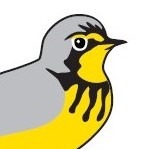Volunteer opportunities for Piping Plovers differ depending on your location.
To inquire about volunteer opportunities in Nova Scotia or New Brunswick, contact:
Contact Information
Rielle Hoeg
Atlantic Outreach Biologist
Contact Information
Sydney Shepherd
Ontario Piping Plover Conservation Program Coordinator
Email: ontarioplovers@birdscanada.org
Cell: 519-766-7553 (active March to October)



